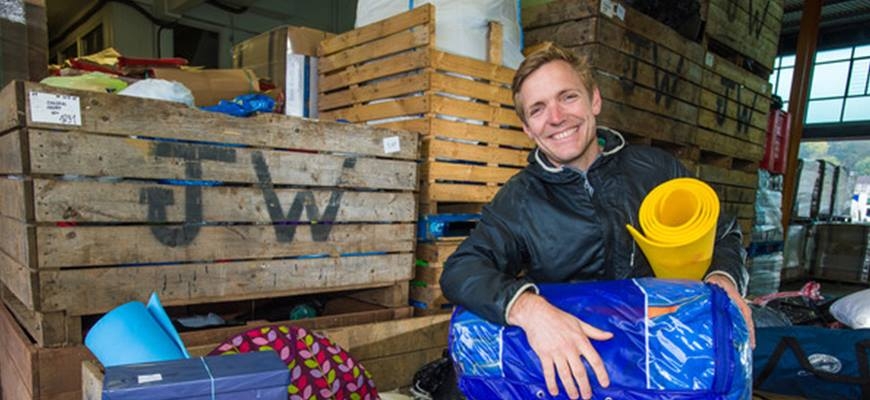
12 Nov 2015
AN APPEAL by a Plymouth cafe for vital supplies to support Syrian refugees had an “overwhelming” response, it has been revealed.
Boston Tea Party, on Vauxhall Street, has been inundated with donations.
All of the family-run company’s 16 café-bars across the South West, which include five in Bristol, collected donations of dried food, toiletries, bedding, camping gear and medicines to be passed on to the charity Syria Relief.
Donated items were picked up from Boston Tea Party venues by their fruit and vegetable supplier, A.David & Co Ltd, and taken to its central warehouse in Bristol to be stored in giant crates.
Sam Roberts, managing director of Boston Tea Party, said: “We were intending to take the donations to the headquarters of Syria Relief in Manchester in a couple of A.David vans but we had such a tremendous response to our appeal that we had to switch to using one of their articulated lorries to transport them to the charity for distribution to international refugee camps.
“We are enormously grateful for the fantastic support from our customers, who it is clear have been as deeply affected as us by the plight of refugees fleeing horrific scenes in Syria.
“We’re so pleased to have been able to do something practical to help those in need, and we can’t thank everyone enough for bringing in items to our cafes over the last month, and our suppliers like A.David for helping us to manage this appeal.”
Items brought into Boston Tea Party’s café-bars by customers included tents, sleeping bags, toiletries like soap and hand gel, toilet rolls, towels and dried foods.
One of the highest costs incurred by the charity Syria Relief is to cover the transport of items to areas in need, so the company also donated £3,500 to pay for the cost of sending donated items to the refugee ‘flash points’.
The charity will then deliver them to refugee flash points in Europe, where large numbers of refugees are arriving but there is little infrastructure to take care of them.

 عربي
عربي